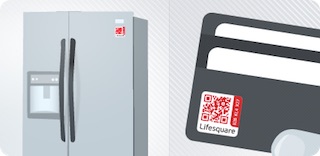 Health IT vendor athenahealth has announced the second class in its relatively new accelerator program, called More Disruption Please (MDP). MDP launched last September and now has six portfolio companies, three based in San Francisco and three in Boston.
Health IT vendor athenahealth has announced the second class in its relatively new accelerator program, called More Disruption Please (MDP). MDP launched last September and now has six portfolio companies, three based in San Francisco and three in Boston.
MDP companies receive seed funding, office space, and mentorship from athenahealth along with access to athenahealth's network of providers, which the company currently counts at 64,000. The accelerator specifically looks for late stage companies that have, at minimum, a beta version of their product and are ready to start scaling.
Boston and San Francisco will continue to accept applications on a rolling basis and a third location, in Austin, Texas, is also recruiting. Here's the six companies currently in the program, starting with the three San Francisco-based companies announced today:
San Francisco
Hale Health offers a mobile-based clinical organization and communication tool that connects providers and patients between visits. Patients can upload photos and videos to providers, care teams can collaboratively tag patient records, and notifications let providers know when patients enter new information.
LifeSquare lets consumers create special emergency medical records that contain all the information a patient might need. That record is then stored in a secure cloud and the company prints out stickers with QVC codes. The user can stick those stickers on their wallet, refrigerator, or car or bike helmet so paramedics can quickly access their health data in an emergency.
PatientPop seeks to help small medical practices grow their reputation and engagement. The service promises to help practices acquire more patients, get better reviews online, drive repeat visits and track marketing analytics.
Boston
Arsenal Health makes Smart Scheduling, a software to streamline appointment booking and predict (and hopefully prevent) no-shows and cancellations. In January, Smart Scheduling graduated from the accelerator into the athenahealth Marketplace, and it's now being used in hospitals including Martin's Point Health Care, where is was able to raise the show rate from 62 to 92 percent for patients who had confirmed their appointments. The company also received an investment from seed fund Rock Health earlier this year.
CredSimple helps providers manage credentialing for their doctors. The software helps keep track of who has what credentials and automates the verification of providers' qualifications.
RubiconMD is an in-hospital telemedicine service that connects patients to specialists for e-consults. The secure mobile consults save doctors and patients time. Rubicon is also a Blueprint Health graduate.


















